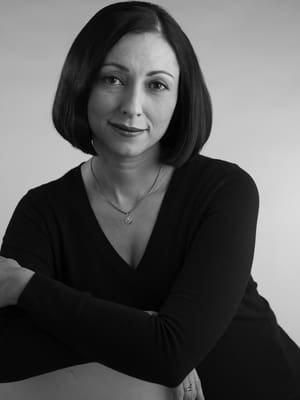In 1982, after the success of the Islamic Revolution in Iran, I was arrested at the age of sixteen. I was a student who didn’t like the new Islamist rules. I wanted to dance in my greenand- white polka-dot bikini on the beach with boys, but the new regime had decreed that having fun was illegal and satanic. I rebelled, was arrested, and taken to Evin Prison.
Two men tied me to a bare wooden bed, took off my socks and my shoes, and lashed the soles of my feet with a length of heavy rubber cable about an inch thick. I would have gladly sold my soul to go back home to my family. Later, I was raped. A revolutionary court I never attended called me an “anti-revolutionary” and a “corruptor of the earth.”
When I think about the revolutions of history, what most of them have in common—no matter the ideology—is a terrible violence whose body count is now at tens of millions. Revolutions are usually uncontrolled explosions of rage, hatred, and fear that have accumulated under the seemingly calm surface of societies.
Within the Iranian diaspora there are many like me who have been victims of the brutalities of the Iranian regime. Many of them are brimming with hatred. They want to do to our enemies— the agents of the Islamic Republic—what they have done to us. This is a typical pattern throughout history: the victim becomes the torturer and the torturer the victim, with no end in sight.
When I say that I have forgiven my torturers, some individuals become even angrier. They yell at me, saying that we cannot forgive and forget. But they have not really listened. I have forgiven my torturers for what they have done to me. I have the authority to do that, but I do not have the authority to forgive them for what they have done to others.
And I have never forgotten. I am a witness—no more, no less. I stand, unarmed, in the way of tsunamis of hatred. I speak about the destructiveness of violence and stare down those who want to kill, no matter whose side they claim to be on.
Forgiveness is the real revolution: refusing the bloodthirsty cycle that serves the lust for revenge. If some wish to call an unrelenting, brutal, and thoughtless explosion a “revolution,” so be it. The real revolutionary is not the one who stays within the status quo of violence, but the one who exposes it and stands in its way.


